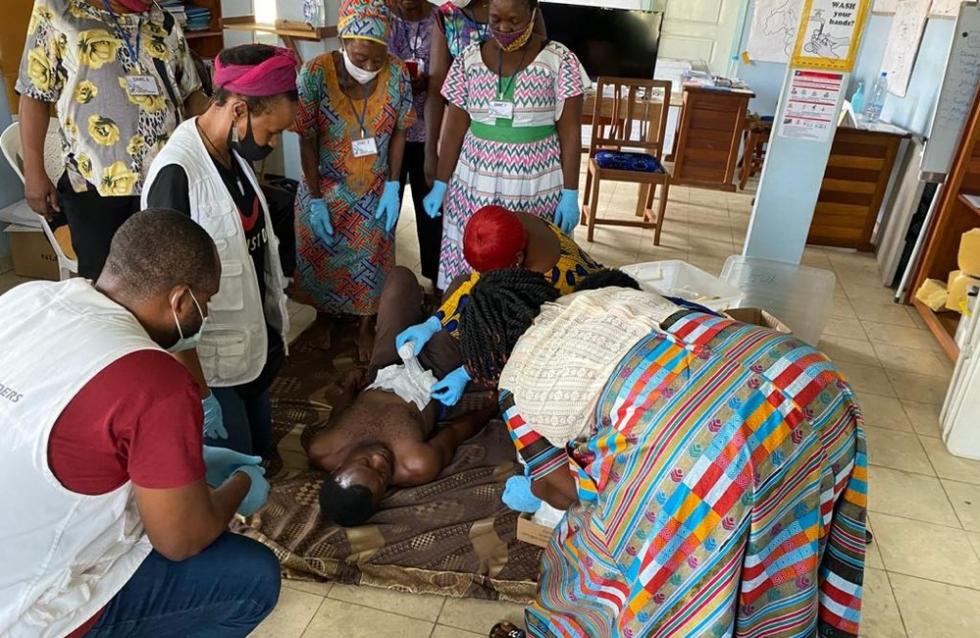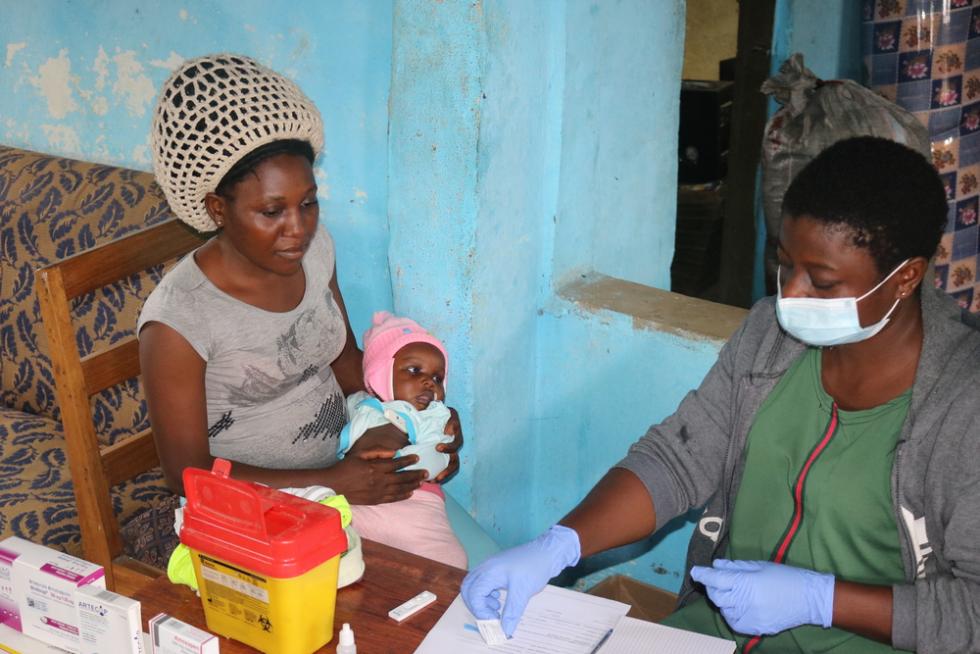THE COMMUNITY AS A PILLAR: PROVIDING ACCESS TO HEALTH CARE IN ISOLATED OR INSECURE CONTEXTS

Michel Quéré, who answers our questions, graduated as a Medical Doctor from the Medical Faculty of Brest (France), with a master’s degree in public health from the Tropical Medicine Institute of Antwerp (Belgium). His professional path with Médecins Sans Frontières began in 1984. For 25 years, he was part of several field missions in the North of Benin, Chad and Democratic Republic of Congo. Since 2009, Dr. Quéré is based at the MSF headquarters in Switzerland, firstly working a Medical Advisor and now as a Community Health Advisor. He will be speaking during the panel discussion focusing on community health approaches during the MSF Paediatric Days 2021 (April 15th).
What are the “Community Based Models of Care”?
We can start with the decentralized health model of care, which consists of providing health care outside of health care establishments and therefore being closer to the patients in order to ensure greater accessibility of both curative and preventive medical activity. In this decentralized health model of care, there are two different kinds of interventions:
- Community health-based interventions, that are basically medical and educational health activities implemented within a community by community health workers who are trained, enabling them to be closer to the target populations.
- Decentralized interventions, that are a range of primary health care activities performed by qualified personnel employed by MSF and/or by the Ministry of Health, who are then deployed within the community.
Why are the Community based models of care so important for MSF?
Access to health care is of prime importance, especially for the most vulnerable populations, who are isolated geographically or are living in insecure contexts. Therefore, decentralizing health care and focusing on access in the community is a simple, adaptable and efficient strategy allowing these populations to access health care, whilst also empowering them.
MSF cannot limit itself to providing care in hospitals and the support brought by mobile clinics and smaller health facilities also has its limitations. In order to provide health access at earlier stages (and therefore avoid complications), decentralizing care to the community level is very efficient due to its geographical proximity, acceptance, and availability 7 days out of 7.
Lastly, in more and more contexts marked by high insecurity, patients struggle to reach smaller health facilities: the community model of care then plays an essential role.
And in addition, the preventive and promotional component of the community model of care is fundamental.
Could you give some examples of community-based programs currently implemented by MSF?
We have classic programs (also implemented by the Ministry of Health and several NGOs) which are “Integrated Management of Childhood Illness at the Community level” (PCIMEC) which undergoes an integrated approach by volunteers to assess and classify signs and symptoms of pneumonia, diarrhoea and malaria in children under five years of age, as well as providing nutritional screenings.
We have this program in Magaria (Niger) with 278 Community Health Workers (CHW) and it can be adapted to different contexts. A few examples of MSF programmes:
- In Agock, South Sudan, community-based malaria care for all ages;
- In Ngala and Rann in Nigeria, in Djibo in Burkina Faso and in Kolofata in Cameroon, community-based care of malaria and diarrhea;
- In Ngala and Gambaru (Nigeria), community health care has been developed, whereas it is usually dedicated to rural areas and isolated villages;
- In the DRC, in the Nizi and Angumu camps, apart from care of malaria and diarrhoea we have also established care for the moderately malnourished as well as family planning activities.
In addition, we are working on community-based interventions such as:
- The "parenting MUAC" program, empowering parents to screen their children for malnutrition;
- Mental health support, including sexual and reproduction health activities.

How is the COVID-19 health emergency affecting this kind of health service:
- The demand of decentralized health care, whether it is expected to increase, remain steady or decrease?
The priority has been to maintain the community-based case management program in a safe manner. It is essential that the CHW do not put themselves in danger and continue with consultations whilst minimizing the risks, thus reinforcing hygiene measures, distancing, protection with masks and even, in some projects, a “no-touch policy” (e.g., not doing the rapid malaria test).
Ultimately, there was no decrease in demand for community care and this reduced the burden on smaller health facilities and thus reduces the risk of COVID-19 contamination.
- Regarding the existing community packages (implemented before COVID-19), will it be possible to adapt them with limited resources available?
It is possible to maintain them due to their low cost and effectiveness, but it is necessary to maintain minimum funding in terms of supervision costs and drug supply.
What are the main challenges in the implementation of community care packages?
Among the numerous challenges there are a few key ones like:
- Adapting health care to isolated villages;
- Assuring supply without interruption;
- Maintaining a good quality of care, with a real challenge particularly regarding the management of acute respiratory infections and the over-prescription of antibiotics;
- Adapting to the highly variable literacy level of the CHW;
- The complex task of data collection and the need to simplify all documentation;
- Retention of CHW.
There is also a challenge linked to the optimization of the community care package. How far to push this package, without overwhelming the CHW and replacing the current health care system?
Which strategies are put in place to ensure the quality of care at community level, as it is a non-professional medical setting?
The quality of the training is a key factor, it has to be done by using simple modules, simple tools and an adapted pedagogy. The second key point is ensuring good quality supervision of the trainings. Our experience has shown that for malaria care, diarrhoea, the introduction of “Sayana press”, as well as for the implementation of a "MUAC parenting" program, our strategies and mechanisms have been successful. However, maintaining a constant quality of care remains a real challenge, particularly regarding the management of acute respiratory infections and the over-prescription of antibiotics.
The Paediatric Days team thanks Michel Quéré for his contribution to this article.
